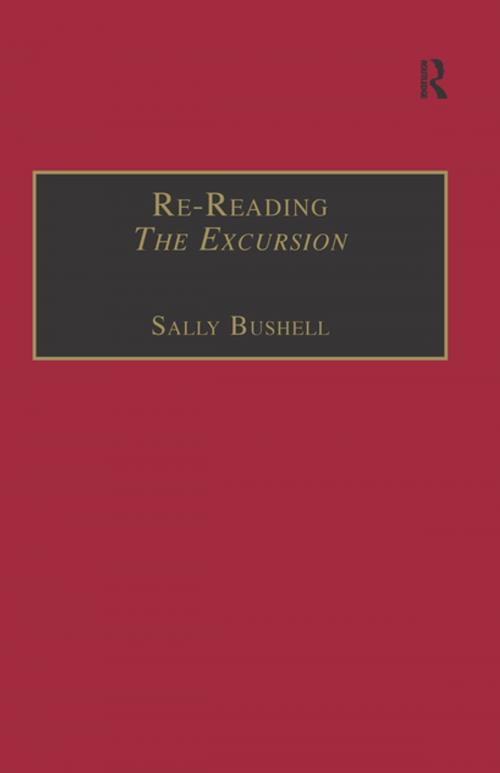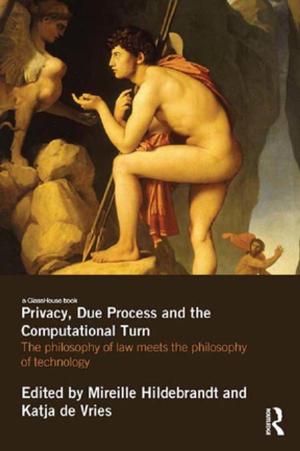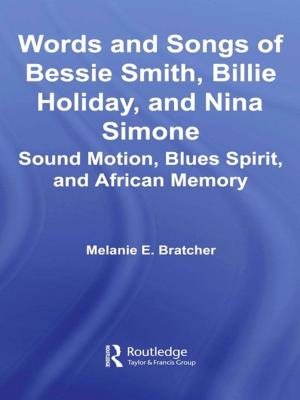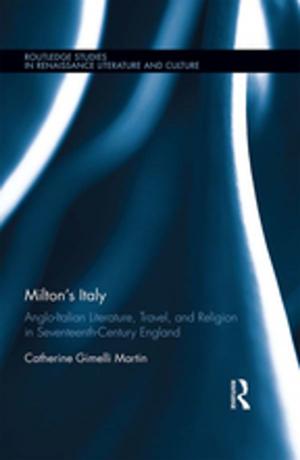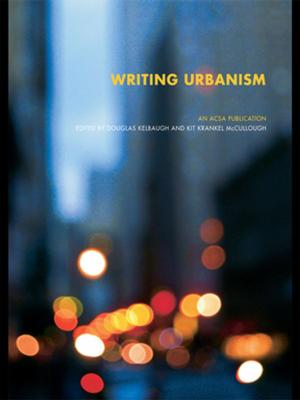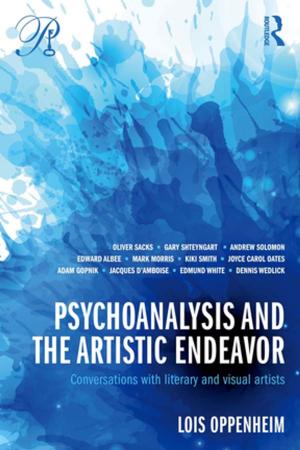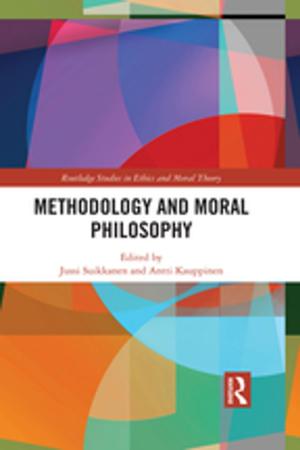Re-Reading The Excursion
Narrative, Response and the Wordsworthian Dramatic Voice
Fiction & Literature, Literary Theory & Criticism| Author: | Sally Bushell | ISBN: | 9781351904063 |
| Publisher: | Taylor and Francis | Publication: | March 2, 2017 |
| Imprint: | Routledge | Language: | English |
| Author: | Sally Bushell |
| ISBN: | 9781351904063 |
| Publisher: | Taylor and Francis |
| Publication: | March 2, 2017 |
| Imprint: | Routledge |
| Language: | English |
Re-Reading The Excursion: Narrative, Response and the Wordsworthian Dramatic Voice is a groundbreaking study, which transforms contemporary critical understanding of The Excursion and of the place of this long poem in the Wordsworthian canon. Sally Bushell argues that the poem, which has suffered at the hands of critics for most of the twentieth century, has been unfairly judged according to a Coleridgean rather than a Wordsworthian definition of "philosophy"-that it has been read as a didactic work, rather than one which uses its dramatic form to teach its readers to think for themselves. She offers a new reading in which The Excursion is shown to be about providing the readers with moral habits and mental constructs by which to learn, not simply telling them what to think. The book begins with a discussion of the reception of the poem in 1814, considering the responses of Coleridge, Hazlitt, Francis Jeffrey and Charles Lamb. This historicized discussion is then balanced by a reading of the poem at the compositional stage, looking at the emergence from the manuscripts of a Wordsworthian dramatic voice. The author goes on to argue that the poem's philosophy is performative-that is, concerned with the way in which moral ideas can best be communicated, as much as with the ideas themselves. She then shifts her attention to consider how this operates in relation to the reader, considering the importance of context in relation to emotional response. Later, the epitaphic books are reconsidered in the light of Wordworth's critical writing; Bushell argues that the significance of the epitaph for him lies in its values as a poetic form in which the text itself is released from poetic authority. Finally, the author looks back at The Prelude from the perspective of The Excursion and shows how the later poem attempts to value the ordinary, rather than the poetic, mind. The conclusion reached is that Wordsworth is not just the "egotistical" poet of The Prelude, interested largely in the development of his own imaginative powers, but one who goes on to explore the limits of subjectivity and the importance of different kinds of imaginative links between individuals.
Re-Reading The Excursion: Narrative, Response and the Wordsworthian Dramatic Voice is a groundbreaking study, which transforms contemporary critical understanding of The Excursion and of the place of this long poem in the Wordsworthian canon. Sally Bushell argues that the poem, which has suffered at the hands of critics for most of the twentieth century, has been unfairly judged according to a Coleridgean rather than a Wordsworthian definition of "philosophy"-that it has been read as a didactic work, rather than one which uses its dramatic form to teach its readers to think for themselves. She offers a new reading in which The Excursion is shown to be about providing the readers with moral habits and mental constructs by which to learn, not simply telling them what to think. The book begins with a discussion of the reception of the poem in 1814, considering the responses of Coleridge, Hazlitt, Francis Jeffrey and Charles Lamb. This historicized discussion is then balanced by a reading of the poem at the compositional stage, looking at the emergence from the manuscripts of a Wordsworthian dramatic voice. The author goes on to argue that the poem's philosophy is performative-that is, concerned with the way in which moral ideas can best be communicated, as much as with the ideas themselves. She then shifts her attention to consider how this operates in relation to the reader, considering the importance of context in relation to emotional response. Later, the epitaphic books are reconsidered in the light of Wordworth's critical writing; Bushell argues that the significance of the epitaph for him lies in its values as a poetic form in which the text itself is released from poetic authority. Finally, the author looks back at The Prelude from the perspective of The Excursion and shows how the later poem attempts to value the ordinary, rather than the poetic, mind. The conclusion reached is that Wordsworth is not just the "egotistical" poet of The Prelude, interested largely in the development of his own imaginative powers, but one who goes on to explore the limits of subjectivity and the importance of different kinds of imaginative links between individuals.
